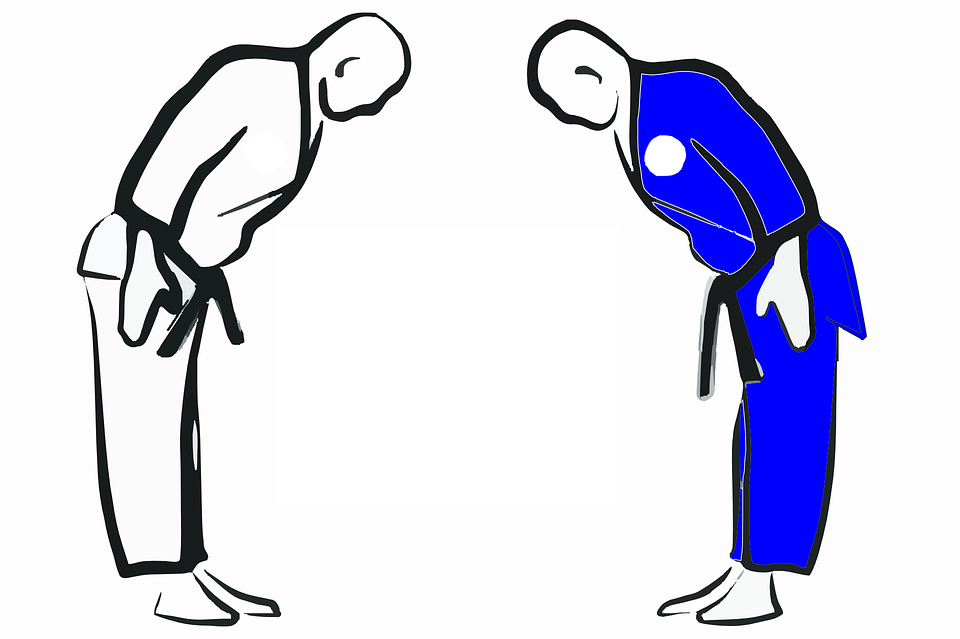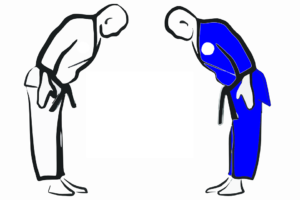
 In just about every martial arts class students line up at the beginning of class to salute the flags and their instructor. This tradition teaches students to honor their specific martial art heritage and respect their instructor. Courtesy is one of the tenets of Taekwondo and I would argue that it also teaches students the value of respecting themselves and improving their own mental health while they are at it.
In just about every martial arts class students line up at the beginning of class to salute the flags and their instructor. This tradition teaches students to honor their specific martial art heritage and respect their instructor. Courtesy is one of the tenets of Taekwondo and I would argue that it also teaches students the value of respecting themselves and improving their own mental health while they are at it.
Let me explain, courtesy is not just about respecting others, although it certainly is important, it is also about respecting one’s self. How many times have you heard someone insult themselves after a mistake or error. In psychology this self criticism is termed “negative self talk” and can be disastrous for our self-esteem and decrease our ability to perform at our best due to the increase in anxiety that usually accompanies negative self talk.
Here are 4 ways that practice a bit of courtesy can improve our mental health:
- Being nice to others may bring a smile to their face, which in turn may bring a smile to your own face and smiling is known to increase “happiness producing” endorphins such as dopamine in our brains.
- Respecting others, even in moments of frustration can help reduce increased stress and anger that may result when others disrespect you.
- Being nice to ourselves and either eliminating or decreasing negative self talk can boost our self esteem, motivation, and our performance.
- Being nice to ourselves can trickle down to the younger generations especially when children overhear how we reframe frustrating or disappointing events into a more positive perspective focused on personal growth rather than criticism.
What are other ways you think courtesy can help mental health?
Courtesy is one of the five tenets of Taekwondo taught at Taekwondo Wellness. Be on the lookout for future blog post describing how the other tenets may improve mental health as well. If you are interested in learning more about our programming, please call 520-333-3320 or visit our dojang at Intuition Wellness Center.
Written by Yoendry Torres, Psy.D., Clinical Psychologist
Image by: Pixabay